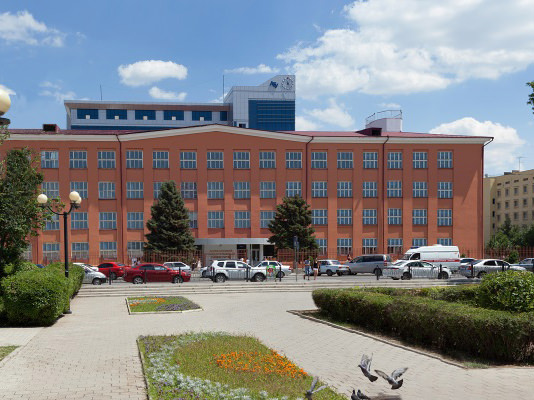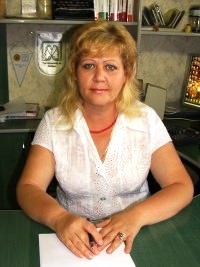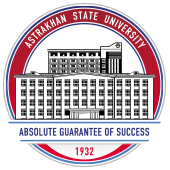Department of People's Friendship
 02.02.2015
02.02.2015
The Department of Preliminary Education of Foreign Citizens has been operating at Astrakhan State University for 10 years already. Its Dean, Dr. Natalia Sannikova, has told us about the main fields of its activities and about its development prospects.
 "Students from almost 20 countries study at our Department: Chad, Iran, Vietnam, Ghana, Guinea-Bissau, Zambia, Egypt, Jordan, Côte d'Ivoire, Congo, Nigeria, Syria, Senegal, Japan, Turkmenistan, Uzbekistan, Tajikistan, and Azerbaijan.
"Students from almost 20 countries study at our Department: Chad, Iran, Vietnam, Ghana, Guinea-Bissau, Zambia, Egypt, Jordan, Côte d'Ivoire, Congo, Nigeria, Syria, Senegal, Japan, Turkmenistan, Uzbekistan, Tajikistan, and Azerbaijan.
It's already the second year that we've been training foreign students not just for Astrakhan State University, but also for Astrakhan State Technical University and for Astrakhan State Medical University, as well as for many other Russian universities (Vladivostok, Volgograd, Kazan, Nizhny Novgorod, Krasnodar, Moscow, and so on).
Students of our Department study on a self-paid or budget-financed basis. The cost of studies is 40, 000 Russian rubles per year. To study on a budget-financed basis, they should contact the Ministry of Education of their home country and get their letter of referral to get education at a Russian university. To get such a letter of referral, they must have obtained a document of secondary education with high scores. If there enough vacant budget-financed positions for future students, then they will be admitted on budget-financed terms. This year, each fifth student of our Department studies on a budget-financed basis.
Each of our student groups used to include 18 people each, but now there are mainly 10 students in each group. Of course, it contributes to their better results of covering preliminary education programs. I'd remark that foreign students are more highly motivated to study than their native Russian peers: foreigners are more goal-oriented and responsible; they treat their classes very seriously, because that's a long-awaited chance for many of them to get a higher education, which is sometimes unavailable in their home countries.
The educational process at our Department is like this. During their first term, our students cover the disciplines "Russian Language" (general studies of Russian) and "Practice of Russian Phonetics". At the beginning of the 2nd term, each of them must choose one of the profiles (Humanities, Economics, Technology, Natural Sciences, or Medicine & Biology) to study special disciplines. Besides, they also have to cover such disciplines as "Studies of Russia" (its geography, policy, economy, and traditions), "Specialization Language", and "Information Technologies".
We've launched intensive courses of Russian this year, as some students from Ghana (planning to enter Astrakhan State Medical University in the future) arrived in Astrakhan too late, so we had to arrange their sped-up studies. They had to study Russian 8 hours every day during two months, and finally they could study special disciplines in common profile groups, where Russian has been taught since September 01.
Some more "educational news" is introduction of the discipline "Practice of Cultural Adaptation". I'd remark that there are very few universities in Russia that deliver such a discipline; there are hardly any manuals or other auxiliary literature. This course has been developed by the faculty staff of the Department of Preliminary Education of Foreign Citizens; its main contents concerns foreign students' speech and social adaptation. Students improve their Russian speech skills when they visit museums, theaters, exhibitions, sightseeing excursions, and so on.
University concerts play an essential role in our students' adaptation; foreigners take part in them with pleasure. Such events help us see the results of our work: it seems we received boys and girls who didn't know a single word in Russian only yesterday, but now they're standing on scene and singing popular Russian songs so easily. So our foreign students live a very eventful life!"
Interviewed by the Innovative Laboratory of Information Linguistics of ASU


